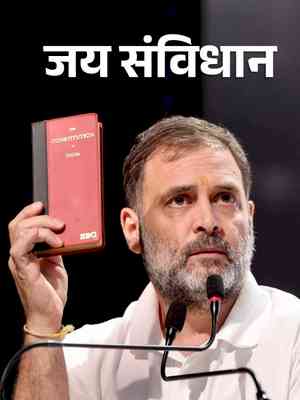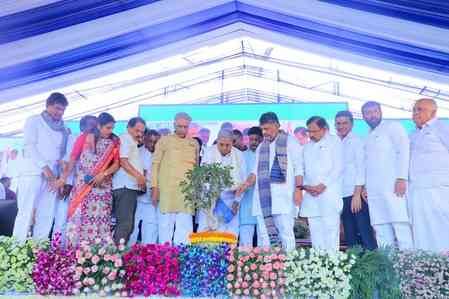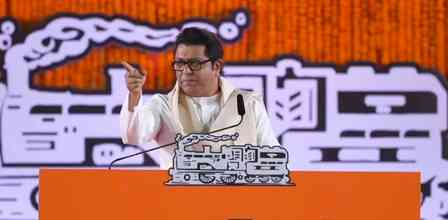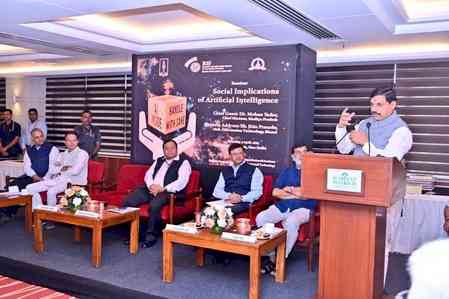There is a fight between Constitution and Manusmriti in the country: Rahul Gandhi
Leader of Opposition in the Lok Sabha, Rahul Gandhi, has described Manusmriti as fundamentally anti-constitutional. Speaking at the 'Samvidhan Samman Sammelan' here on Saturday, he remarked that the ideological conflict between the Constitution and Manusmriti has persisted for generations.

Ranchi, Oct 19 (IANS) Leader of Opposition in the Lok Sabha, Rahul Gandhi, has described Manusmriti as fundamentally anti-constitutional. Speaking at the 'Samvidhan Samman Sammelan' here on Saturday, he remarked that the ideological conflict between the Constitution and Manusmriti has persisted for generations.
Rahul Gandhi emphasised that although India's Constitution was formally written in 1949-1950, its underlying philosophy is thousands of years old, shaped by visionaries like Lord Buddha, Guru Nanak, Baba Saheb Ambedkar, Birsa Munda, Narayana Guru, and Basavanna (philosopher and poet). “Without the influence of these great leaders, the Constitution might not have come into existence. Today, however, that progressive thinking is under siege,” he said, adding that safeguarding the Constitution is the nation's most urgent task.
Criticising the Central government, Rahul Gandhi accused not only Prime Minister Narendra Modi and Home Minister Amit Shah, but also others of systematically weakening the Constitution. "Their goal," he warned, "is to undermine and destroy it, but we will not let that happen."
Reiterating the Congress party's commitment to a caste census, the Congress MP stated that it is crucial to address growing inequality, as 1 per cent of the population controls the rights of 90 per cent. He claimed that the history of these marginalised communities is being erased, He once again vowed that the caste census would be conducted at any cost, along with lifting the 50 per cent cap on reservations.
Rahul Gandhi expressed concern about the lack of representation of tribal and backward communities in India's education system. Reflecting on his own schooling in India, he pointed out that there are hardly any chapters dedicated to the history, culture, or contributions of tribals, Dalits, and backward classes. "Dalits are only mentioned in one line about untouchability," he said, and the contributions of OBCs, farmers, and labourers are largely absent from the curriculum.
He also criticised the country's bureaucratic structure for its exclusionary practices, noting that Dalits, tribals, and backward classes are grossly underrepresented in major ministries. He explained that if Rs 100 is allocated for spending, Dalit officers control only Re 1, and tribal officers even less.
Gandhi further highlighted the lack of representation of these communities in sectors like media, corporate leadership, judiciary, and entertainment, accusing the government of deliberately keeping them away from their rightful share of power and opportunities.
Targeting the BJP, he said they refer to tribals as "Vanvasis" (forest dwellers), which he believes is an attempt to marginalize them. "Tribals were the original inhabitants of this land," he asserted, adding, "they have the first right to its resources."
He accused the BJP of excluding President Droupadi Murmu from key national events, such as the inauguration of Parliament and the Ram temple, due to her tribal background.
Gandhi also accused the BJP of seizing control over key institutions, including the media, Election Commission, CBI, ED, Income Tax, and the bureaucracy.
--IANS
snc/skp/


 IANS
IANS 








